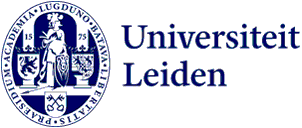
300 million euros for new international stem cell consortium
The Leiden University Medical Center (LUMC), the Danstem Institute from the University of Copenhagen and the Murdoch Children’s Research Institute in Melbourne have received 300m euros from the Novo Nordisk foundation. The aim of this new international consortium is to bring stem-cell based therapies from the lab to the patient.
Stem cells offer a unique opportunity to repair tissue that has become damaged by disease or trauma. The possible applications of these cells are promising for the treatment of diabetes, metabolic diseases and hereditary disorders, but much work is still needed to get these stem-cell therapies to patients. To accelerate this, the Novo Nordisk Foundation is investing around 100m euros in each of the three institutes that together form the new reNEW consortium. The funding is for a period of ten years.
Resolve, rebuild and rewrite
The new consortium will focus on three different aspects of stem-cell research. One of these, reSOLVE, is coordinated by LUMC professor Christine Mummery and focuses on replicating tissues with stem cells to study diseases and test new drugs. The LUMC will try to reproduce heart tissue and blood vessels, among other things. The second programme, reBUILD, aims to develop new clinical applications with stem cells, for instance for Parkinson’s disease and diabetes. This project is being led from Denmark by Agnete Kirkeby. LUMC professor Niels Geijsen is coordinating the reWRITE programme that will develop genetic modification techniques to treat genetic disorders.
Unique ecosystem
The LUMC has a long tradition of organ transplantation and the development of therapies and disease models based on stem cells. It has a leading role in the area of regenerative medicine in the Netherlands. This is due in part to the combination of the right expertise and infrastructure. A production facility, NECSTGEN, is being built at the Leiden Bio Science Park, for example. Stem-cell products can be produced here that may be used in patients.
‘I’m really enthusiastic about reNEW. In Leiden we already have a unique ecosystem with excellent research, teaching, proven tranlsational potention and ultramodern infrastructure. This new collaboration and financial boost will enable us to create the critical mass needed to bring about a major turning point in this emerging medical field,’ says Pancras Hogendoorn, Dean and Vice-Chairman of the Executive Board of the LUMC.
Boost
At the LUMC reNEW is coordinated by Professor Ton Rabelink: ‘This donation is a fantastic boost to this relatively new field within medicine. It also builds on the ambition that has been made possible by the National Science Agenda and in which we collaborate within national consortia such as Regmed XB.’
Regenerative medicine
Regenerative medicine is one of the three priorities of the LUMC. Together we work on innovative new treatments. See the LUMC website for more about the regenerative treatments that the LUMC is working on.
